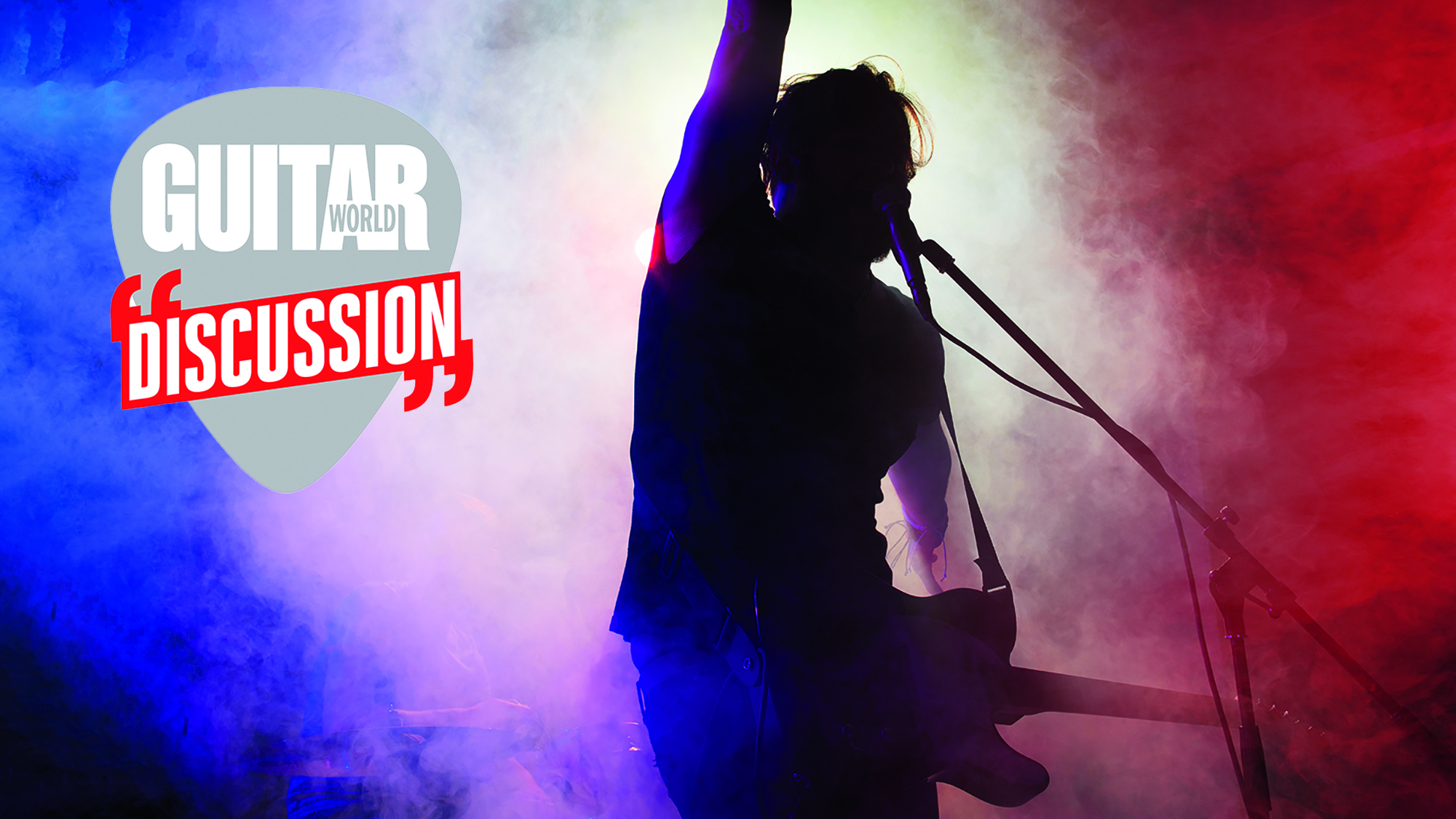Slash and Gibson's Cesar Gueikian share the origins of the new Slash Collection of Les Pauls and J-45 acoustics
"There’s a far more conscientious attitude about the history and heritage of Gibson, and also what the company represents and where it should go in the future”
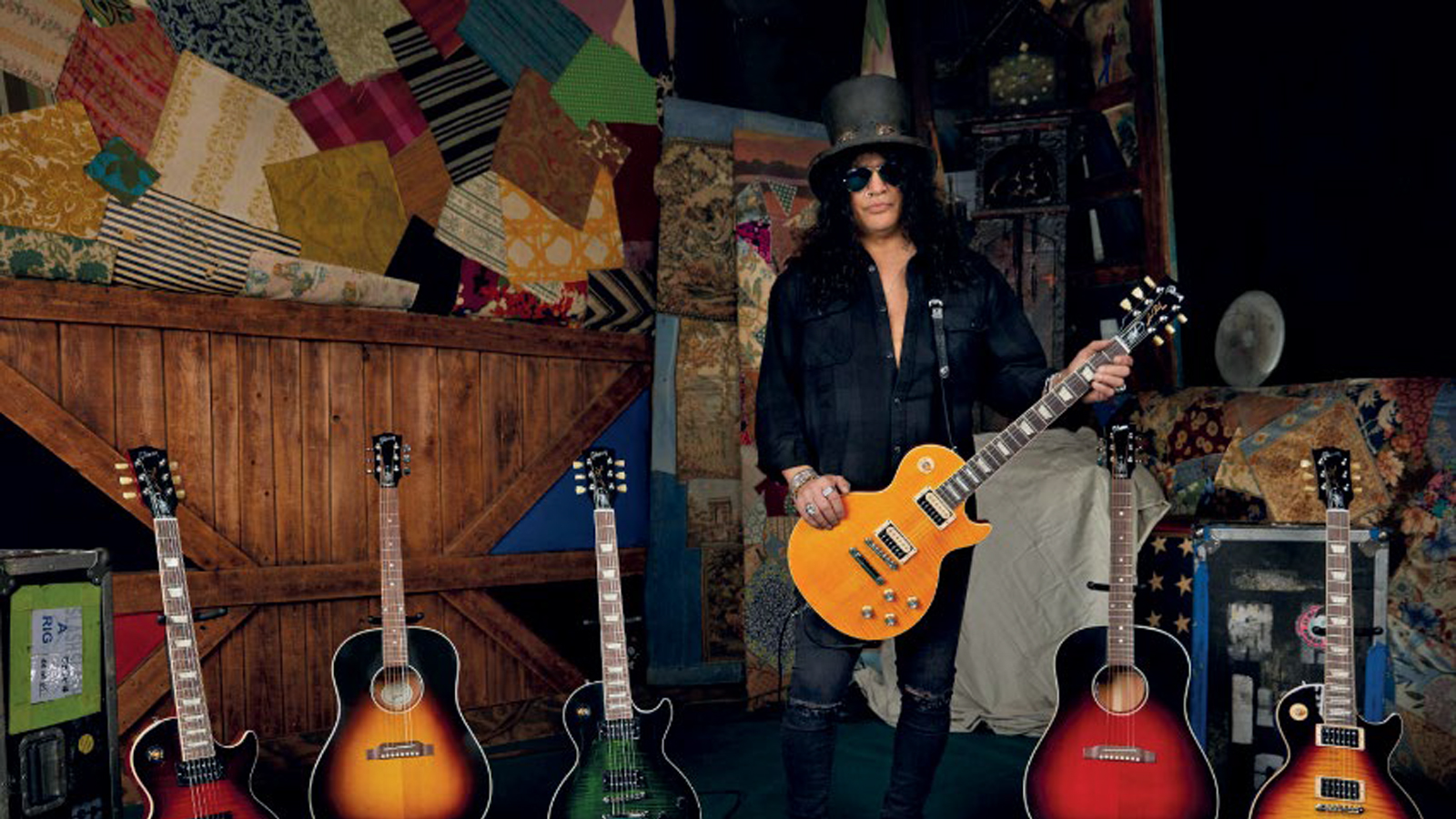
When Guitar World sits down to chat with Slash on a sunny California afternoon, the guitarist is holed up in a hotel room near the Anaheim Convention Center, where the NAMM Show - the massive music industry trade event that gathers upwards of 100,000 professionals and fans under one roof - is currently underway.
Note that the operative word in this sentence is “near.” Because, as Slash points out, the last time he actually stepped foot inside the Convention Center during NAMM, the experience was, to put it mildly, “overwhelming.”
And how could it not be, given that Slash is - and this is hardly hyperbole - maybe the most iconic and instantly recognizable guitarist of the past 30 or more years? For him to walk that convention floor amongst tens of thousands of devoted players and fans would be to create an outright frenzy of near-riot proportions, which he seems to be humbly acknowledging.
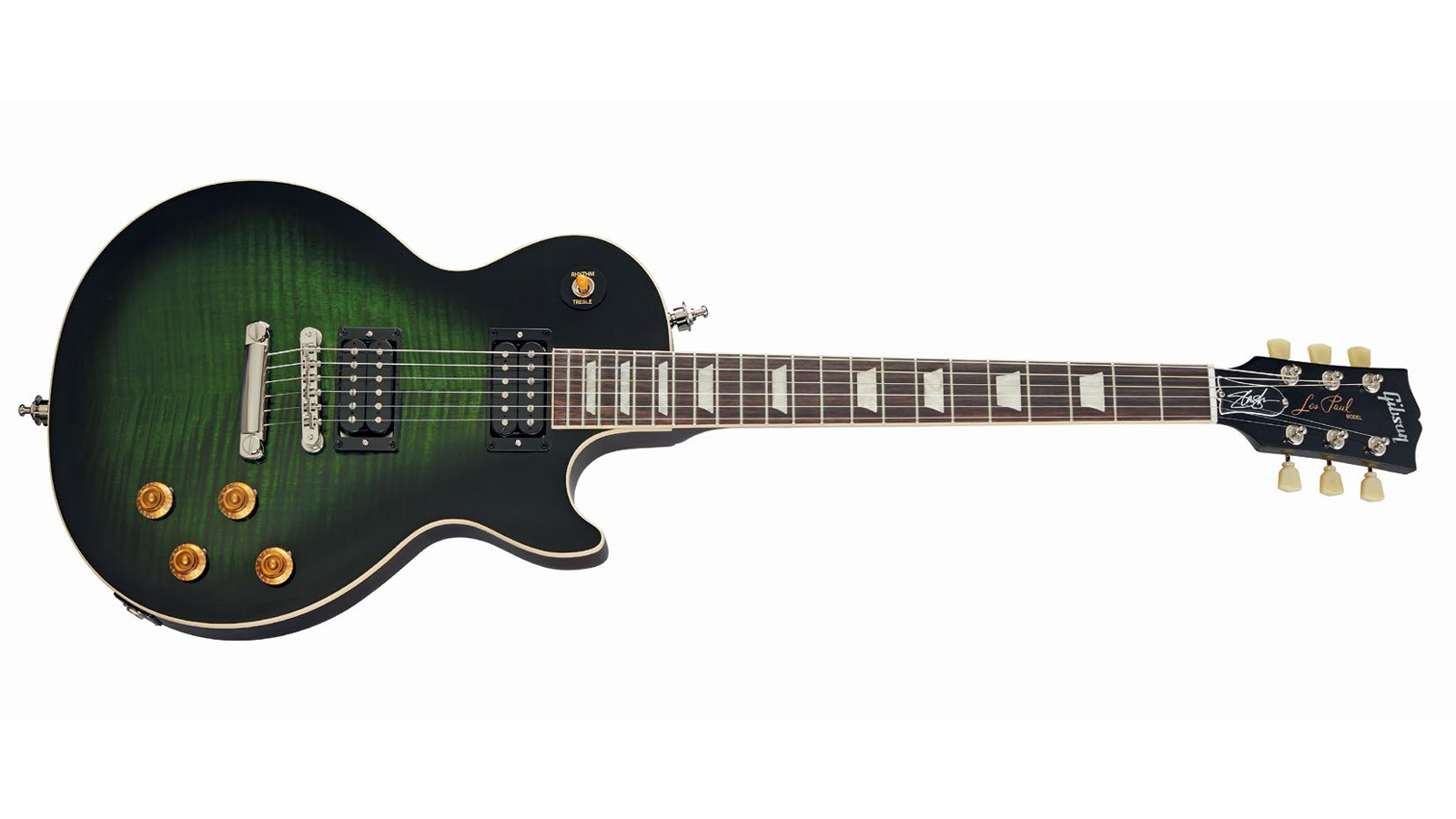
But even while Slash himself does not make an appearance at this year’s NAMM (although he does still headline a killer Gibson party later in the evening), the guitarist - and, more to the point, his guitars - are still the talk of the show. The reason? The unveiling of Gibson’s new Slash Collection.
It’s worth recognizing here that, while a new Slash signature guitar from Gibson is always welcomed - and, given that they’re generally offered in limited runs, also quickly snatched up - the Slash Collection is something entirely different for both artist and company.
The concept for the collection became, 'how do we now create something that is representative of all those moments in music history that Slash has been at the forefront of developing?'
Cesar Gueikian
Because unlike other one off collaborations with the man who, with Guns N’ Roses, went a long way toward single-handedly putting the Les Paul back on the map for rock guitarists in the late '80s, Gibson’s Slash Collection encompasses a full line of instruments. What’s more, it represents the first time Gibson has undertaken an endeavor of this sort with one of its signature artists.
Moreover, the Slash Collection consists of more than just the requisite Les Pauls. At launch, the range offers four new electrics - the Slash Les Paul Standard in November Burst and Appetite Burst, as well as limited-edition Anaconda Burst and Vermillion Burst - alongside two Slash J-45 Standard signature models (in November Burst and Vermillion Burst), which represent the guitarist’s debut acoustic guitar collaboration with the company.
Get The Pick Newsletter
All the latest guitar news, interviews, lessons, reviews, deals and more, direct to your inbox!
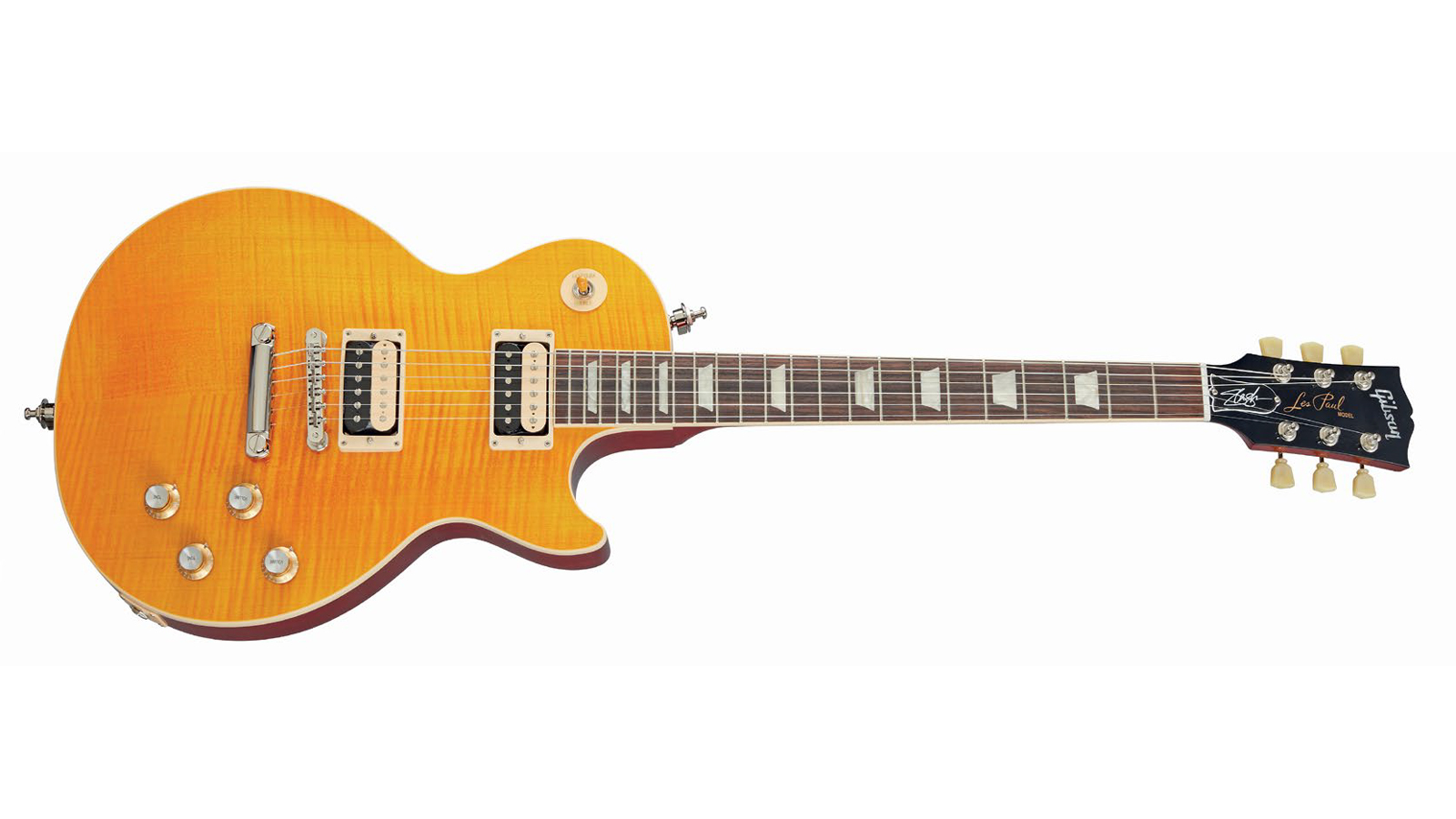
As for how the idea for the Slash Collection came about? “It started with a discussion between us and Slash about, ‘Where do we go from here?,’” says Gibson Chief Merchant Officer Cesar Gueikian. “Slash has such a wide variety of instruments that he’s played and that have become famous at different points in his career - across different albums and different tours, with Guns N’ Roses or on his own or with the Conspirators.
"With that in mind, the concept became, 'how do we now create something that is representative of all those moments in music history that Slash has been at the forefront of developing?' And the answer was, ‘Let’s not just work on one more guitar - let’s work on a collection.’”
For the last year-and-a-half I’ve been using a couple of Custom Shop Les Pauls that I designed, so when Cesar said he wanted to do a core Slash line I said, ‘Fuck yeah, that’d be great'
For Slash, one of the key selling points of collaborating with Gibson on a project of this scope was that the Slash Collection guitars would be part of the Gibson USA production line, and therefore more readily available and affordably priced than limited-edition Custom Shop models.
“It was really a revelation,” Slash says. “For the last year-and-a-half or so I’ve been using a couple of Custom Shop Les Pauls that I sort of designed, but that I basically did just for myself. And they’re great guitars.
"So when Cesar said he wanted to do a core Slash line, which was basically those guitars plus other things that I wanted to do, like bringing the Appetite guitar [the limited edition Gibson Custom Slash “Appetite for Destruction” Les Paul] back as a USA guitar, I said, ‘Fuck yeah, that’d be great.’”
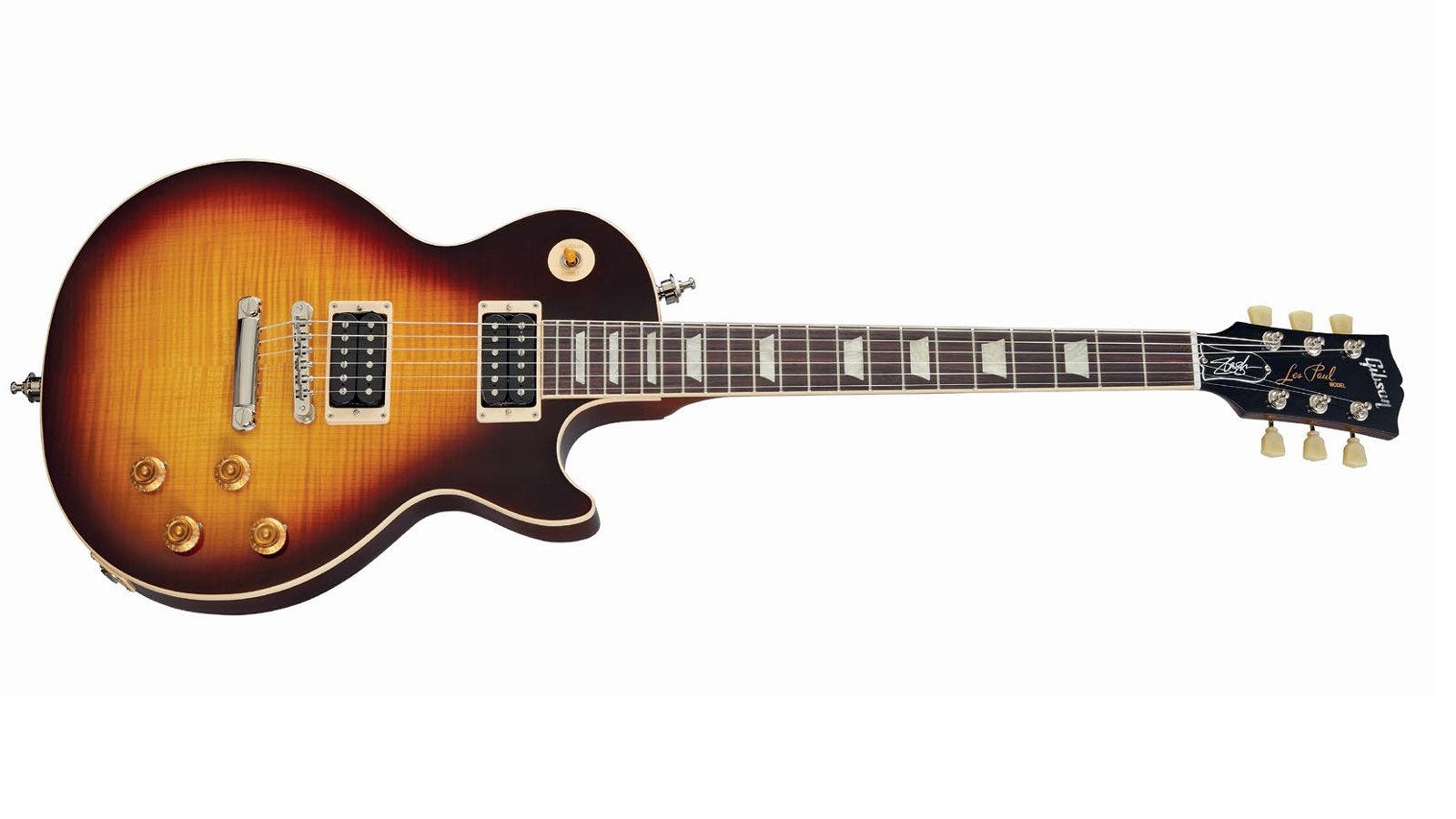
The new Slash Collection Les Paul Standards use classic ’59 Les Paul design and specs as their foundation, with AAA maple tops, solid mahogany bodies, mahogany necks and rosewood fingerboards with trapezoid inlays.
From there, Slash and Gibson added a few personal artist touches: a C-shape neck profile, new “SlashBucker” pickups, color-coordinated hardware appointments and hand-wired electronics with orange drop capacitors (the electrics and acoustics also feature personalized accents like a Slash “Scully” signature drawing on the back of the headstock and his signature on the truss rod cover).
Some of the Slash-specific specs, the guitarist points out, “are Custom Shop specs that I have on all my guitars. So that’s what I think is so cool - in a way this is a USA guitar with pretty much every Custom Shop spec on it.”
We wanted to focus on doing something similar to the Alnico II [humbuckers] that I’ve done in the past with Seymour Duncan
One component that Slash has not had on his previous Les Pauls - and that’s because they didn’t exist until now - are the brand-new SlashBucker pickups. Of the new design, Slash explains, “It’s sort of a medium-output pickup.
"We wanted to focus on doing something similar to the Alnico II [humbuckers] that I’ve done in the past with Seymour Duncan, and since Gibson makes great pickups it seemed like the right thing for us to do it together."
Explains Gueikian, “We started with a [Gibson] Burstbucker and then we modified it to carry an Alnico II magnet, which is what Slash loves playing. And the winding of the coils is offset - it’s not the exact same number of rounds per bobbin. So you get that vintage PAF feel, but with the addition of the Alnico IIs. Which is the Slash sound.”
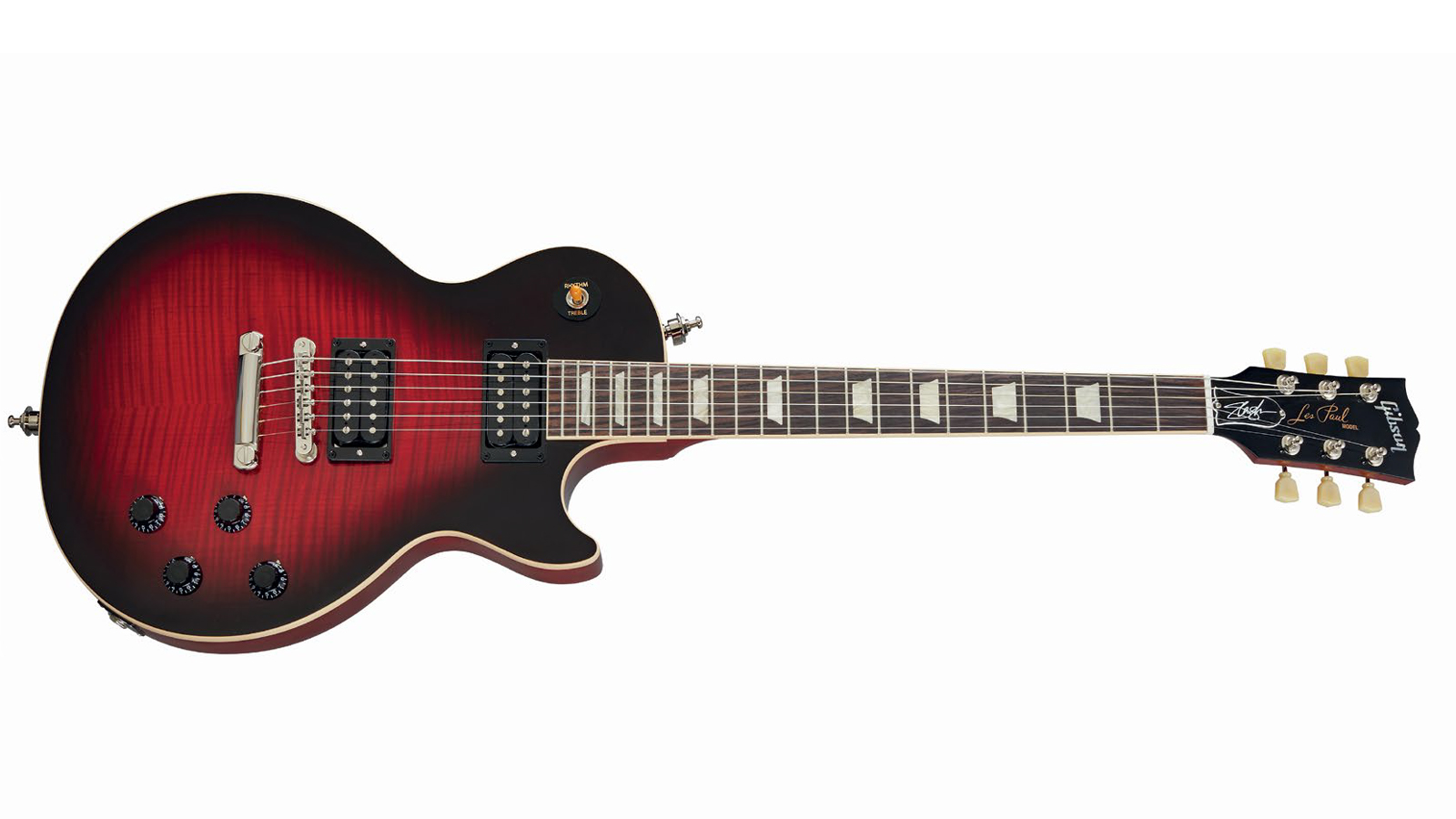
The pickups in all four Les Paul models are uncovered (“I just like the way they look,” Slash explains), but the Appetite Burst adds another nice visual touch - a Zebra color scheme reminiscent of the coils on his famous '80s-era guitar.
As for the finishes themselves, Slash has been using custom Vermillion Burst Les Pauls onstage with the Conspirators over the past few years, and took such a liking to the color that he wanted to incorporate it into the Collection. “It took a long time to develop that Vermillion color,” Slash says.
“It was something that Gibson did that I then said, ‘Okay, let’s take this, and then do this and this and that to it.’ I went through five or six different prototypes during the last Conspirators tour before we got to what you see.”
As for the other models, the Anaconda Burst finish was briefly available on a Slash Custom Shop model, whereas the Appetite Burst, as Gueikian informs us, “needs no introduction.”
The November Burst, meanwhile, is a lighter take on a traditional Tobacco Burst finish and references the ’59 Les Paul that that once belonged to Aerosmith’s Joe Perry (and which, thanks to Slash, does once again) and that the guitarist famously wields in Guns N’ Roses’ November Rain video.
“The original Les Paul that Slash played in the video, which was Joe Perry’s guitar, had faded, but it’s still a Tobacco Burst,” Gueikian explains. “So I threw the idea out one day when Slash was with us at Gibson - why don’t we do this and call it the November Burst? He said, ‘Let me think about it.’ And a couple of weeks later he came back and said, ‘I like it.’"
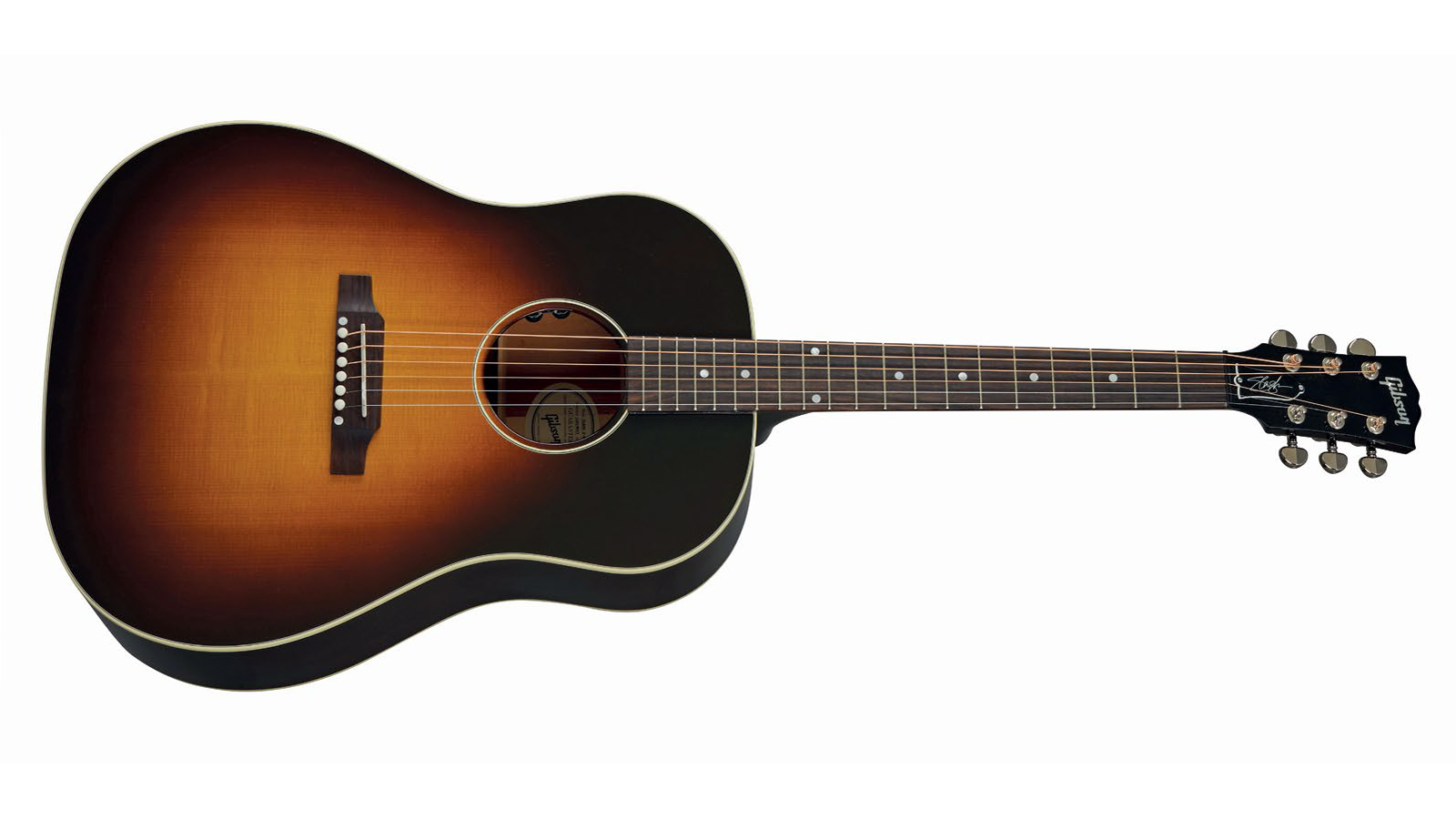
In general, Slash says, the process of working with Gibson to craft the Collection was easy from beginning to end. “Since Cesar and everybody came on-board at Gibson it’s a completely different vision,” he proudly says. “There’s far more of a conscientious attitude about the history and the heritage of Gibson, and also what it is that Gibson represents and where it should go in the future.”
This balance between past, present and future can be seen in the second component of the Slash Collection - his new signature J-45 acoustics. The J-45 has been in production at Gibson since the 1940s, and is regarded as the brand’s best-selling and most iconic acoustic design. “It’s my favorite acoustic model,” Slash says.
If anybody were to draw Slash they’d probably draw him with a Les Paul, but he's also an amazing acoustic guitar player
Cesar Gueikian
“It’s very straightforward, very simple. I take J-45s out on the road all the time, but I never actually thought to do an actual line of acoustics…,” he laughs, “…because Gibson would just give them to me. But when they said to me, ‘Why don’t we do an acoustic collection, because you have your acoustic set up to your own specs as well?,’ it made perfect sense.”
“If anybody were to draw Slash they’d probably draw him with a Les Paul,” Gueikian acknowledges. “But he’s also an amazing acoustic guitar player and he plays quite a bit of acoustic guitar. So he had this J-45 that he loves at home, and we said, ‘If that’s the guitar you love, that’s what we should be working on and we should make it just the way you like it.”
In Slash’s case, making his signature J-45 just the way he likes it meant retaining the cornerstone design elements - dreadnought-style body, Sitka spruce top, mahogany back and sides, mahogany neck and rosewood fingerboard - that have made the model a classic, while adding a few key modifications, such as a reimagined fingerboard radius.
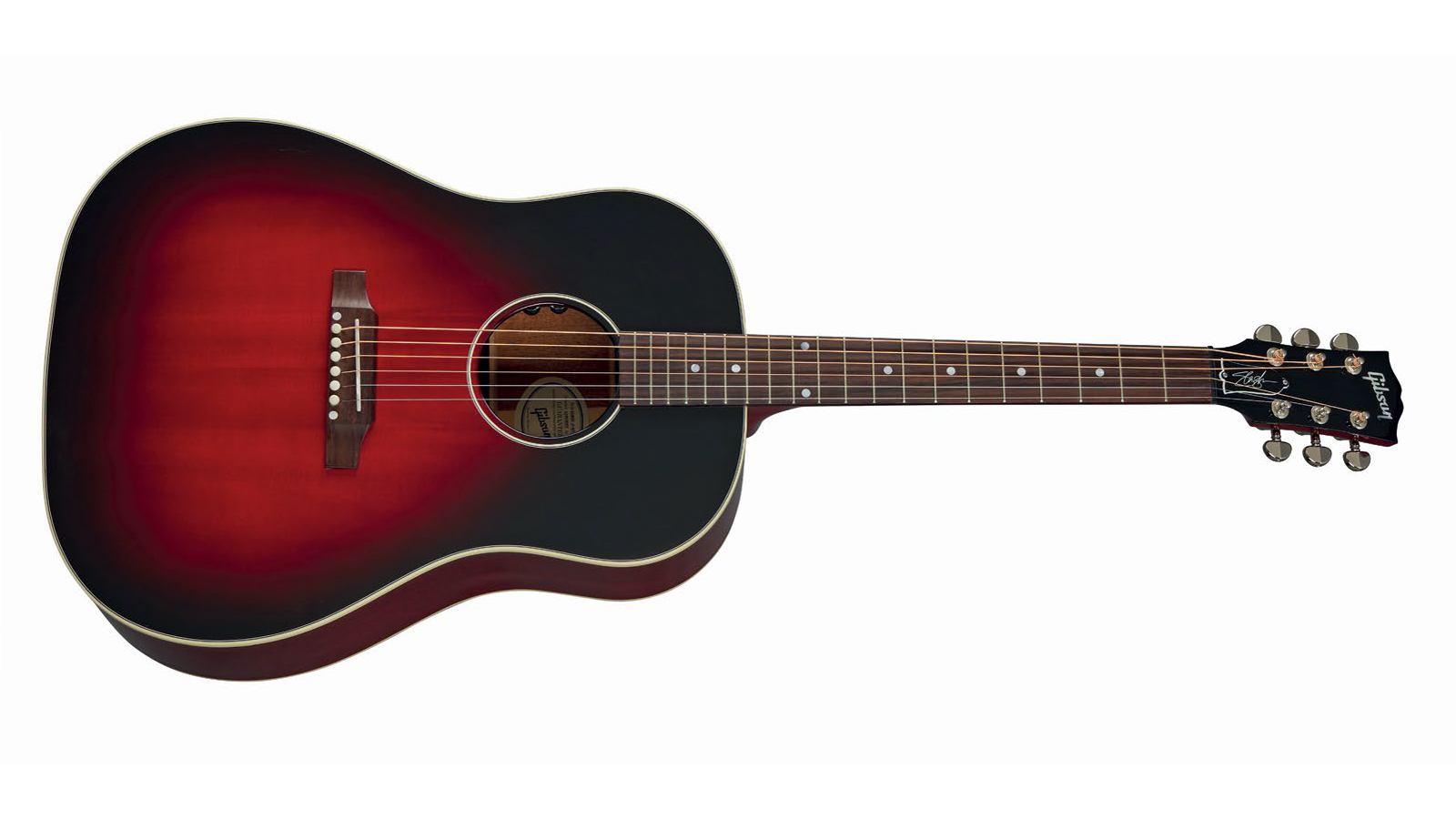
“Slash’s vintage J-45 has a 12-inch radius, but in our discussions we said, ‘Why don’t we also consider a flatter 16-inch radius?,’ ” Gueikian says.
“I told him it was worth trying because with his style of playing and how much he bends, it might actually be something that he would end up liking. He was a little doubtful at the beginning, but we ended up making two guitars, one with a 12-inch radius and one with a 16. And he ended up loving the 16-inch radius.”
Another slight but important design adjustment came with the electronics. “The whole time I was out with Guns we were working on it and developing it,” Slash says of the improved system. “We spent a lot of time listening to different piezos and discussing the shortcomings.”
“We started with an LR Baggs VTC,” Gueikian says. “And then we began tweaking the output to try to find the right balance of preserving that vintage J-45 sound but with a higher output, which is what Slash is looking for when he’s playing live.”
The result is an instrument that offers classic acoustic tone while also meeting the needs of the modern rock player. “It’s really a guitar that was designed to be played loud onstage, and then when you take it home and play it unplugged it’s the sound that everybody loves about a J-45,” Gueikian says.
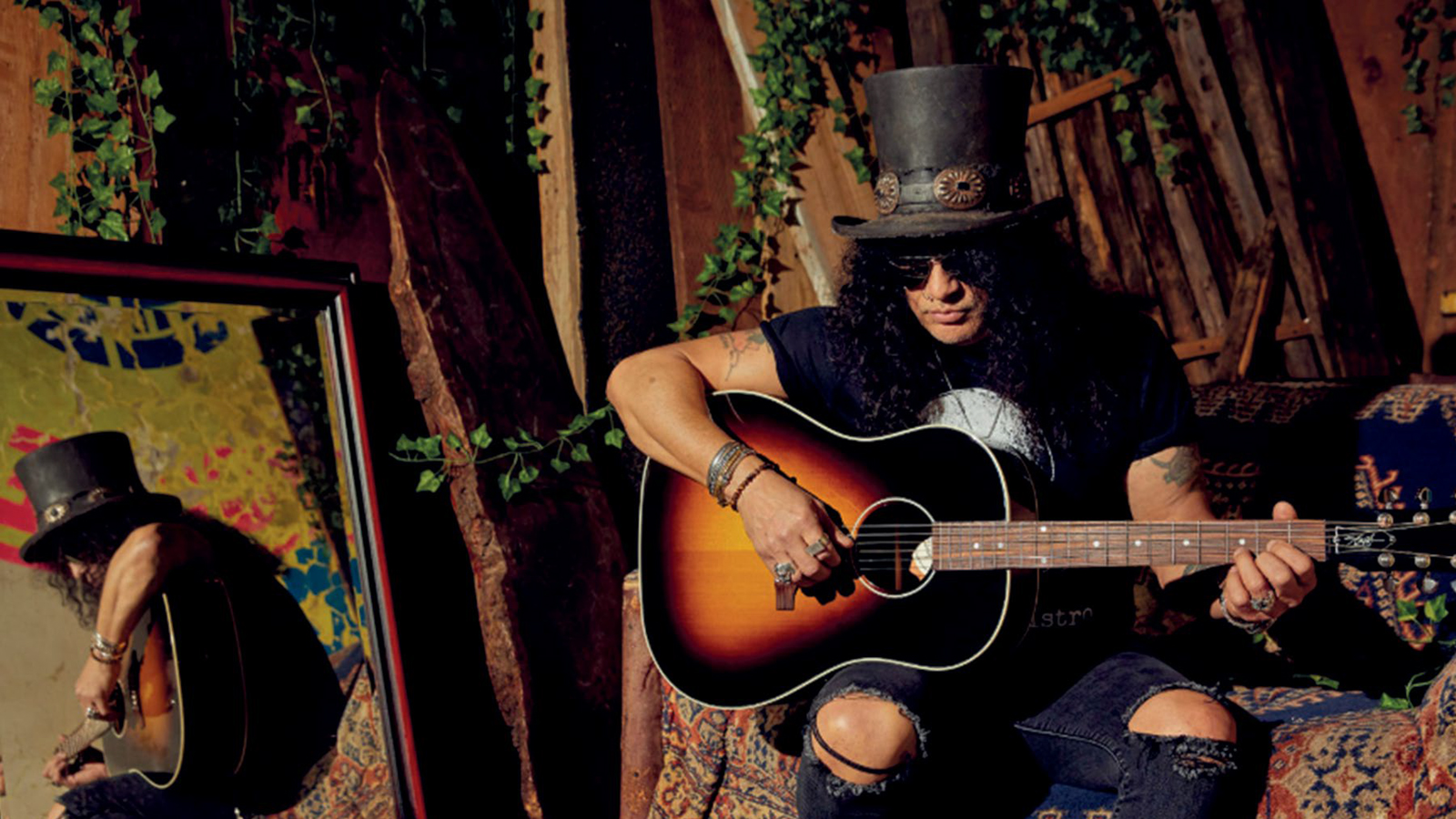
Slash, for his part, has been using a signature J-45 on Guns N’ Roses tours - “I play it on Patience and [the band’s cover of] Wichita Lineman,” he says. At home, meanwhile, he’s been putting a Slash Collection Les Paul to work on new music he’s composing for future projects.
Beyond his own use, however, one of his favorite things about the new Slash Collection guitars is that they’re not just for him. Rather, these are premium instruments that are also aimed at the typical working player.
“There used to be a time when the only way you could get a really good signature Les Paul was through the Custom Shop,” Slash says. “Which meant sending people to a place where 90 percent of them couldn’t really afford to buy the thing. So it’s really exciting to me to do this through [Gibson] USA.”
[Slash] gets really involved in what we do together. It’s an amazing experience to work with someone like that
Cesar Gueikian
And, promises Gueikian, there are more exciting things to come. “With Slash, the vast majority of his sound is always going to be made with a Les Paul. But the great thing about him is he has an intellectual and musical curiosity to try new things. He’s always in pursuit of… I don’t know if I’d call it pursuit of the perfect sound, but pursuit of the sound that perfectly represents him.
So he gets really involved in what we do together - the look, the finish, the top, the feel of the neck, the pickups - he’s into everything. It’s an amazing experience to work with someone like that.
“So while the concept of the Slash Collection was to start with the six guitars, we also know that we can go into new and different places with him. The idea is to amplify the Slash Collection over time, and to continue to create something that is relevant and inspiring both to his longtime fans and to newer generations of players.”
Rich is the co-author of the best-selling Nöthin' But a Good Time: The Uncensored History of the '80s Hard Rock Explosion. He is also a recording and performing musician, and a former editor of Guitar World magazine and executive editor of Guitar Aficionado magazine. He has authored several additional books, among them Kurt Cobain: Montage of Heck, the companion to the documentary of the same name.
“It combines unique aesthetics with modern playability and impressive tone, creating a Firebird unlike any I’ve had the pleasure of playing before”: Gibson Firebird Platypus review
“I met Joe when he was 12. He picked up a vintage guitar in one store and they told him to leave. But someone said, ‘This guy called Norm will let you play his stuff’”: The unlikely rise of Norman’s Rare Guitars and the birth of the vintage guitar market












